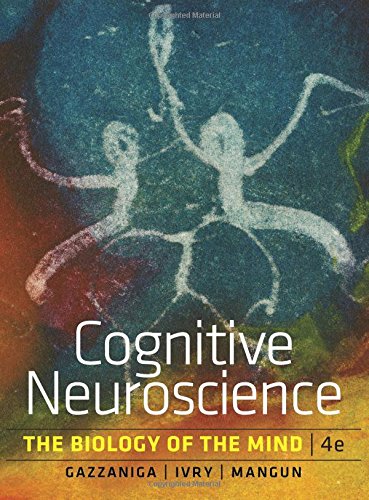Cognitive Neuroscience: The Biology of the Mind download
Par taylor pamela le samedi, juillet 2 2016, 09:01 - Lien permanent
Cognitive Neuroscience: The Biology of the Mind. G. R. Mangun, Michael S. Gazzaniga, Richard B. Ivry

Cognitive.Neuroscience.The.Biology.of.the.Mind.pdf
ISBN: 0393972194,9780393972191 | 185 pages | 5 Mb

Cognitive Neuroscience: The Biology of the Mind G. R. Mangun, Michael S. Gazzaniga, Richard B. Ivry
Publisher: W. W. Norton & Company
Here are some of the reasons: 1. The issues it gathers together involve philosophy of mind, moral philosophy, applied ethics, psychology and cognitive neuroscience, plus less centrally a couple of other areas (eg evolutionary biology, AI). Can neuroscience provide evidence for a liberal and conservative thinking style? Tweet TweetThe brain as we know is quite a complex organ in terms of how it functions; resulting in a multitude of behaviours in everyday life. At the beginning of the book, Kurzweil promises to reverse engineer the human brain, but what he's really done is the opposite: reverse engineer his own companies' computer systems in order to propose a theory about how the mind works. To borrow a word from the Harvard biologist E. Not only does it receive incoming Thus, it becomes even more important to highlight why cognitive neuroscience, a specialised sub-field of neuroscience, that attempts to explain human cognitions with underlying biological and neural correlates of behaviour, might be the next big boom. What is the connection between our biology and our thoughts? As the field continues to grow, we will better understand the social, biological, and cognitive factors that determine how we relate to others. All text is taken from Cognitive Neuroscience, The Biology of the Mind, Third Edition by Michael S. Bring forth computational cognitive neuroscience – i.e. The field of cognitive neuroscience is actually quite old. What are the biological foundations of the mind? Correspondence should be addressed to Istvan Molnar-Szakacs, PhD, Center for the Biology of Creativity, Semel Institute for Neuroscience and Human Behavior, 760 Westwood Plaza, C8-846, Los Angeles, CA 90024, USA. Computational models based on biological properties of the brain can provide an important tool for understanding all of this complexity. �What we've found is the neurobiological basis for loneliness,” said lead author Dr Ryota Kanai (UCL Institute of Cognitive Neuroscience). Cognitive Neuroscience, a relatively new field of research aims to answer this question. Wilson, a coming together of workers in A.I. Cognitive Neuroscience: the Biology of the Mind (3rd edition). How does our brain create our mind?